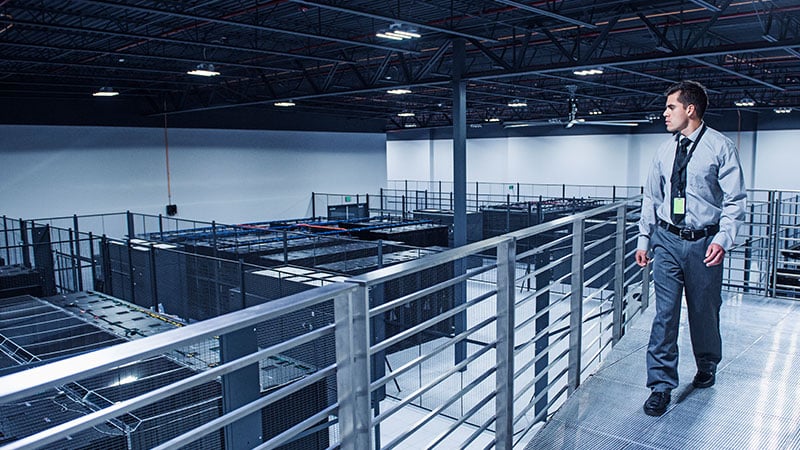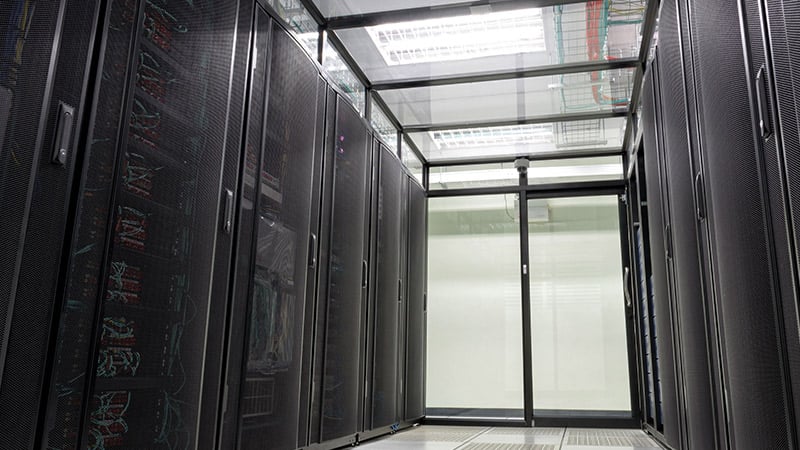In today's fast-paced and digitally-driven world, uninterrupted power supply is crucial for mission-critical applications. Businesses rely heavily on Uninterruptible Power Supply (UPS) systems to safeguard their operations against power outages and ensure continuous availability. In this blog post, we will explore the importance of modularity in UPS systems, specifically focusing on scalability and hot serviceability, and its advantages.
Scalability: Meeting Evolving Power Demands
As businesses expand, their power requirements often increase, necessitating a flexible power infrastructure. Modularity addresses this need by offering a scalable UPS solution. By allowing for easy addition or removal of power modules, a modular UPS design simplifies capacity upgrades and reduces downtime during maintenance or expansion. Organizations can start with a base configuration and then gradually add power modules as needed, optimizing their investment and aligning power capacity with their growth trajectory. Scalable UPS systems also enhance energy efficiency, as power modules can be activated or deactivated based on demand, reducing energy wastage during periods of lower power requirements.
Hot Serviceability: Ensuring Continuous Availability
In critical applications, every second counts. Traditional UPS systems often require taking the entire system offline for maintenance or component replacement, leading to costly downtime and potential disruptions. Hot serviceability, a hallmark of modular UPS designs, addresses this challenge by enabling maintenance and component replacements while the system remains operational.
In addition, some UPS enhance this advantage by integrating independent DSP control in each power module. An example is the Vertiv™ Liebert® APM2, where this self-regulating capability enables seamless operation of the system, even during maintenance tasks. By isolating the faulty module and allowing for its replacement without affecting the overall system, hot serviceability significantly reduces downtime and ensures continuous availability of power to critical applications.
Reliability and Availability: A Systemic Approach to Reduce the Impact of failures
Modularity enhances the reliability and availability of UPS systems by mitigating the risk of single-point failures. In a traditional UPS, failure of a single module can bring down the entire system. However, in a modular design, power modules function independently, reducing the impact of failures. The distributed architecture of a modular UPS increases system resiliency and fault tolerance, minimizing the risk of total system shutdown.
Furthermore, modularity simplifies system maintenance and troubleshooting. By breaking down the UPS into manageable modules, technicians can easily identify and rectify specific issues, reducing mean time to repair (MTTR). This streamlined maintenance process translates into improved serviceability and faster restoration of power in case of any failures.
High Charging Capacity To Enhance Performance And Efficiency
A significant advantage of choosing a modular UPS system is its high charging capacity, which greatly enhances overall performance. With this feature, the UPS can rapidly recharge its batteries during short utility power interruptions, ensuring they remain at full capacity and ready to support critical loads whenever needed. This proves especially valuable in regions experiencing frequent power fluctuations or environments where power quality is a concern. Moreover, the high charging capacity of a modular UPS system contributes to extending UPS battery life by reducing the depth of discharge during each power outage, prolonging their operational lifespan and lowering total ownership costs. Additionally, the system's ability to handle rapid load changes ensures a stable and continuous power supply, making it a reliable choice for critical applications.
Sleeping Mode, Intelligent Paralleling and Redundancy For A Highly Reliable Power System
Intelligent paralleling is another critical advantage that sets modular UPS systems apart, enabling multiple UPS modules to collaborate seamlessly and form a highly reliable and fault-tolerant power system. This intelligent approach ensures that the UPS can adapt to varying power demands and distribute the load efficiently among its operational modules. In the event of a module failure or reaching its capacity limit, the load is redistributed to the remaining operational modules, ensuring uninterrupted power to critical loads and minimizing the risk of downtime.
As a result, industries with mission-critical applications, such as data centers, IT environments, financial institutions and manufacturing facilities, benefit immensely from these features.
Conclusion
Modularity in UPS systems offers tremendous benefits in terms of scalability and hot serviceability. With a next-generation modular UPS design, organizations can achieve greater flexibility in meeting evolving power demands and ensure uninterrupted availability of critical applications. By adopting a modular approach, businesses can scale their power infrastructure efficiently, reduce downtime during maintenance activities, and enhance overall system reliability. As technology continues to advance, the importance of modularity in UPS systems will only grow, helping businesses adapt and thrive in an increasingly power-dependent world.
For more information, view the Vertiv™ Liebert® APM2









